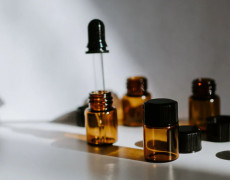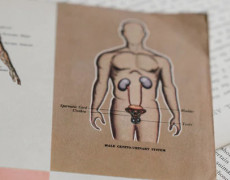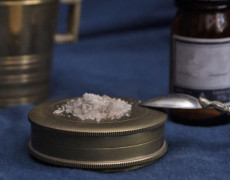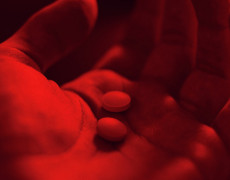Ketamine and falling down a k-hole


As ketamine grows in popularity as a party drug, you may be hearing more about ‘falling in a k-hole’. But what is actually happening, and how do you stay safe?
Ketamine has been growing in popularity overseas as a club drug, and its use is also increasing here in NZ. KnowYourStuffNZ saw a notable increase across the 2019/20 festival season, and trends suggest this will continue.
Ketamine is a sedative drug, or dissociative anaesthetic, developed in the 1960s for medical use. It is also known as Ket, K, Special K, VitaminK, or Wonk. It is typically bought as a fine white powder which is usually snorted.
People who take ketamine can experience a sense of detachment from their body and surroundings.
Stay safer by staying informed. Sign up to receive alerts and notifications about any dangerous drugs in NZ straight to your inbox. Check out the alerts page to see what we've already found.
What is a k-hole?
Because ketamine is a dissociative drug, it creates a feeling of dissociation – the sense of being detached from reality and yourself. This gets more intense at higher doses, to the point where someone may feel numb and unable to control their own bodies, including being able to talk or move.
This is what’s referred to as a k-hole - when someone seems unresponsive, while at the same time experiencing vivid hallucinations. Other common effects include:
- Confusion
- Unexplainable experiences
- Floating sensations
- Mind/body dissociation
What are the risks of a k-hole?
Most people end up in the k-hole accidentally when they take too much ketamine. It can be a very disturbing experience, especially if it wasn’t the intended effect, as the feeling of helplessness can be overwhelming.
As well as feelings of detachment, someone falling into a k-hole may experience feelings of panic and anxiety, hallucinations, changes in sensory perception (like sights, sound and time), disorientation and confusion
Other physical effects of taking high doses of ketamine can include:
- Increased heart rate
- Elevated blood pressure
- Loss of coordination
- Nausea, vomiting
- Short-term memory loss
Because high doses of ketamine may cause numbness and the inability to move or speak, there’s a risk someone can fall and injure themselves or others. It may also not be possible for someone to ask for help if they are in distress.
If someone falls into a k-hole they may have difficulty coming out of the state of dissociation – meaning they continue to feel disconnected from the world and their life. There have been reports of people developing ongoing symptoms of psychosis.
Ketamine is a powerful anaesthetic that can cause serious harm. Long-term effects of taking too much ketamine can include dependence, nasal damage, heart problems, cognitive effects, bladder problems and seizures. It can be fatal, particularly if mixed with other drugs.
While no drug use is safe, there are some steps that can help reduce the risks.
- Low doses are safer. The K Hole can be a very disturbing experience, especially if it wasn’t the intended effect.
- Ketamine stays in the system after the effects stop, so taking more can lead to stronger effects than expected.
- As always, avoid mixing drugs as the combined effects can be unpredictable and increase risk. Especially avoid mixing ketamine with depressants like alcohol, benzos and opiates, as the combined sedative effect increases the risk of choking, overdose or losing consciousness.
- Regular users experience bladder problems – including UTI’s, cystitis, and a risk of ulcerated bladder. Seek medical advice and do not take ketamine to reduce the painful symptoms.
- Try to stay in a safe and calm environment. As with all drugs, it’s better to have people around that you trust and who have knowledge of first aid.
If you think someone is suffering from an overdose, call 111 immediately and ask for an ambulance.
If you have any concerns about your own drinking or drug taking, get in touch with the Alcohol Drug Helpline on 0800 787 797, or text 8681. You’ll be able to speak with a trained counsellor who can provide you with helpful information, insight and support. They’re available 24/7, all calls are free and confidential. You can also chat to the team through their website.
Latest Articles

15 Apr 2024
Thinking of using GBL/GHB?

12 Apr 2024
Ketamine and bladder damage – know the risks

8 Mar 2024
Synthetic cathinones explained

22 Feb 2024
What’s happening with synthetic cannabinoids?

31 Jan 2024
What is tuci?

19 Jan 2024
Answering some common questions about MDMA

10 Jan 2024
Understanding the risks of the comedown

5 Jan 2024
Looking after your mental health

15 Dec 2023
Tips for a safer night out

12 Dec 2023
To mix it is to risk it
